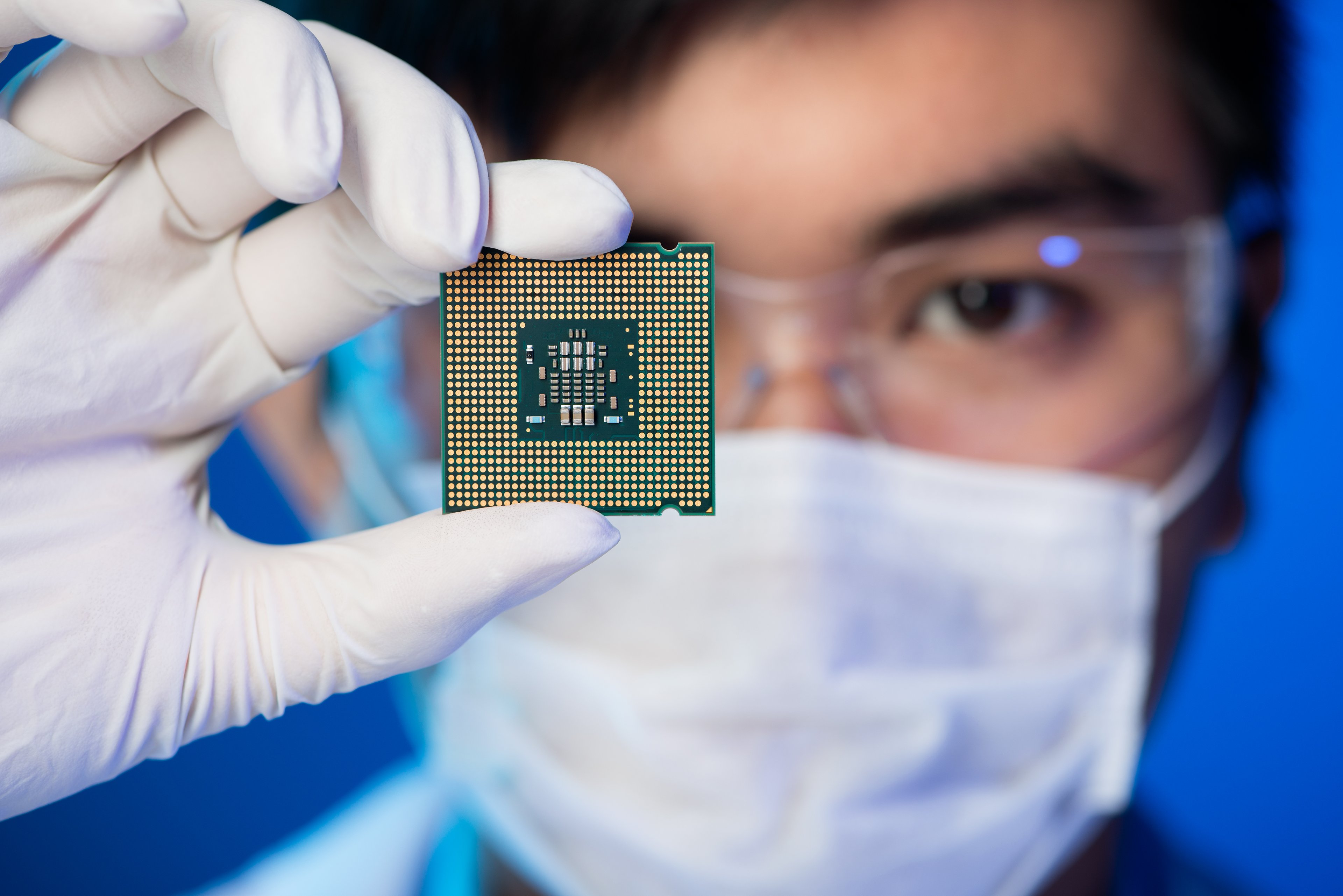What a difference a week can make on the stock market.
This truism seemed to be very much in force for microchip stocks on Monday. After last week's sell-off, many got off to a roaring start with the new trading week. Asian powerhouse Taiwan Semiconductor Manufacturing (TSM 0.57%) rose by over 2% on the day, as did its busy U.S. peer Broadcom (AVGO +1.51%). Lapping them both was chipmaking equipment specialist Lam Research (LRCX +2.26%), which posted a nearly 7% gain.
Chip worries melting away?
Whenever a sector or stock is hit by a widespread investor sell-off, discount hunters wait in the wings for a good time to buy on the cheap.
That largely holds true for an asset that isn't clearly in dire straits, and the semiconductor industry is hardly doing badly right now. Artificial intelligence functionalities need the most powerful next-generation processors available, and the better chip companies like Taiwan Semi have effectively positioned themselves to take advantage.
Which raises the question -- why was there a sell-off at all?

NYSE: TSM
Key Data Points
Last Wednesday, a report in Bloomberg said that the Biden administration is considering the imposition of more severe controls on chip companies' exports to China. While the country's economy has had its stumbles it is still a massive market, particularly for tech components such as microprocessors. A tighter export regime would doubtlessly affect the business -- and not in a good way -- of every chipmaker with Chinese sales.
There was also some indication that if Donald Trump were elected U.S. president, he might take a relatively soft approach to China's foreign policy. In the extreme, this could mean a successful Chinese invasion of Taiwan, the island nation it badly covets (and home, of course, to Taiwan Semi).
At this point, both can only be considered speculation. And there are certain chip market watchers that think such developments won't come to pass.
Among these is researcher Lynx Equity Strategies, which on Monday published a new analysis of the current state of the chip industry. It argued in its report that Taiwan Semi has positioned itself to be insulated from the U.S. government policy in regards to Taiwan. It added that since this is an election year, the Biden administration might be too late to introduce such a drastic change to its existing China policy.
A good time to buy on price weakness
Personally, I'd lean more toward Lynx's argument. This doesn't feel like the time for sudden, and potentially violent, changes in our relations to China and in that country's approach to Taiwan. Meanwhile, demand is hot and heavy for the wares sold by Taiwan Semi, Broadcom, Lam Research, and many other chipmakers. Taking advantage of the share price dip in these stocks feels like a sensible move to me.



